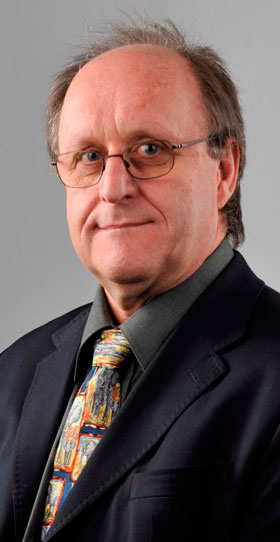
The department of basic education has issued a circular stating that two school subjects, namely computer applications technology and IT, be limited to Microsoft Office and the Delphi programming language respectively.
The move has outraged open-source advocates and even raised the ire of the Cape Chamber of Commerce.
IT strategist and free and open-source software advocate Derek Keats on Tuesday published a blog post, which quickly went viral, in which he decried the move, arguing it is imperative for schools to “excite” the next generation of software engineers.
“Teaching a moribund language [Delphi] is not going to excite anyone,” Keats says in the blog post, adding that it would be “far better” to teach a programming language actually “in use” in the commercial world. “Any 21st century language would be better than Delphi. Any. Any at all.”
The basic education department’s directive concerning computer applications technology states that, from next year, schools must use only Microsoft Office 2010 and 2013 to implement the curriculum and assess pupils. The directive, issued in the form of “circular S9 of 2013”, is signed by acting acting director-general Paddy Padayachee.

Keats says that the use of Office exclusively is not only “anticompetitive” but “denies school learners exposure to a variety of viable alternatives”, while also denying “other companies access to the school environment”.
Meanwhile, the programming language taught in schools will be “standardised” on Delphi, the basic education department says in its circular. “Due to training requirements for provinces currently using Java, implementation will be as follows: grade 11 implementation in January 2015 and grade 12 implementation in January 2016. As from November 2016, the department of basic education will only use Delphi for assessment.”
Keats argues the decision to implement Delphi is a “bit like mandating Latin as the language for literature”.
According to Keats, the move also runs counter to the South African government’s free and open-source software policy, introduced in 2007.
He tells TechCentral that one of the arguments put forward in the past by the basic education department is that if teachers are trained in Java, they will leave the profession to become programmers. This is “absurd”, Keats says.
Meanwhile, the Cape Chamber of Commerce says the department’s decision regarding Delphi is likely to have “detrimental consequences for education, which will exacerbate the skills crisis”.
The chamber will hold a meeting on 16 October to discuss how the policy affects pupils and the future competitiveness of business, says chief operating officer Bronwen Kausch.
A programming lecturer at the computer science faculty of one of South Africa’s top universities, who asks not to be named because of the university’s policy against academics commenting in the media, says the main objection to Delphi is that it is a visual-orientated language while Java is object-orientated, and that this has a “profound effect on what is taught” and how it is taught.
“It is possible to teach object-orientated programming through Delphi, but it’s really hard,” she says. “Java, on the other hand, doesn’t lend itself to visual programming.”
It’s a “massive job” to change from teaching one to the other and many schools — particularly those in the Western Cape — have been using Java, and so moving to Delphi will be difficult, she says. However, she doesn’t agree with Keats that Delphi is a “dead language”.
“The basic principles and building blocks are the same in all languages,” she says. “Delphi isn’t used much in industry, but that shouldn’t be the issue. What should be the issue is what skills the education department is looking to teach and the foundation they’re looking to lay down.”
Delphi is based on the programming language Pascal, which was designed specifically as a teaching language. “The C++ we teach at the university is terribly messy and horrible to teach. It’s extremely powerful — which is wonderful — but it’s badly behaved and poorly structured. Java, on the other hand, has both — it’s powerful and nicely designed.”
The lecturer believes the worry should be the “repercussions of forcing a language on schools”, when in the past decade schools have been able to choose which language, or languages, they want to teach. Many independent schools have not aligned themselves with a single language to give their pupils a more thorough grounding.
“The problem is forcing a change,” she says. “What we should be asking is what’s prompting the call for change when so few schools are teaching IT anyway.” — (c) 2013 NewsCentral Media
- Top image: IICD/Flickr




